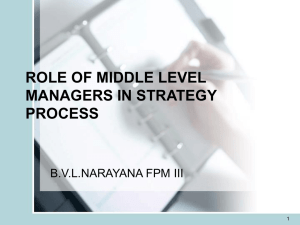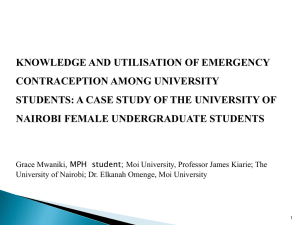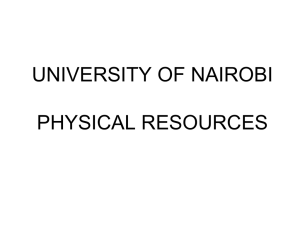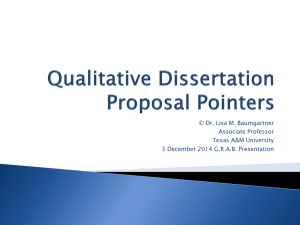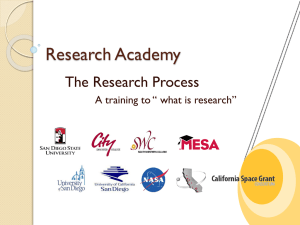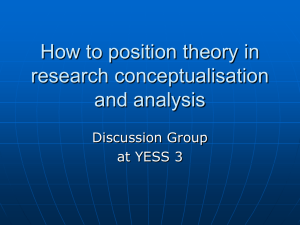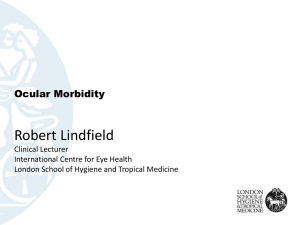SAFIC 2013 Workshop Programme Presentation
advertisement
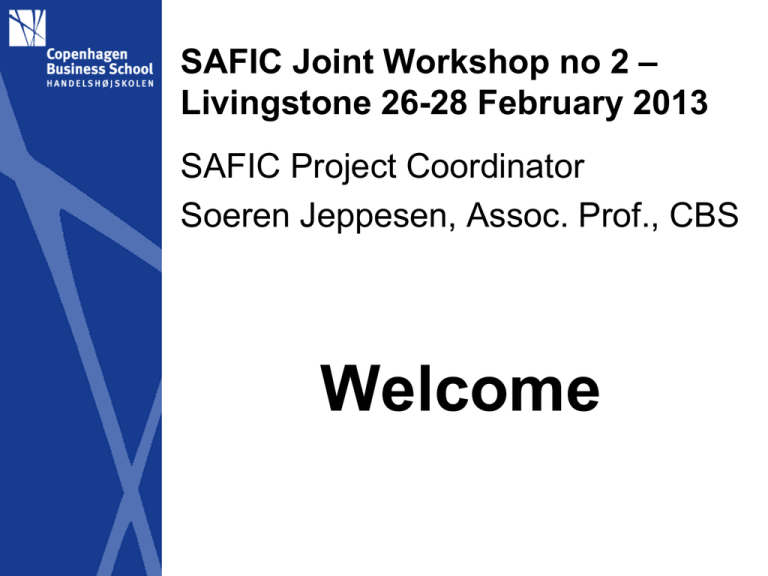
SAFIC Joint Workshop no 2 – Livingstone 26-28 February 2013 SAFIC Project Coordinator Soeren Jeppesen, Assoc. Prof., CBS Welcome SAFIC Joint Workshop no 2 – Livingstone 26-28 February 2013 Project/workshop ground rules: Workshops • Focus on presenters & activities • Mobiles off • Laptops only when typing SAFIC Joint Workshop no 2 – Program: 1st day (Tuesday 26th Feb 2013): Results 2012, Country Background papers/reports, Theoretical framework/Indicators/survey & Socialising 2nd day (Wednesday 27th Feb 2013): Theoretical framework etc (part II) and PhDs 3rd day (Thursday 28th Feb 2013): Country plans, The year 2013, Practicalities & Viewing the Falls SAFIC – Program – Day 1 (26 Feb 2013) • Results (Overall and by teams) • Break • Country Background Papers/reports & what have we learnt, including lunch & Break • Theoretical framework/Indicators of ‘success’ and the survey instrument (part 1) • Dinner SAFIC Joint Workshop no 2 – Practicalities: * Food (breakfast, lunch and dinner at Crossroads Lodge) * Internet (…., password: …..) * Any other questions, ask us (Douglas, Godfrey and local team) SAFIC Joint Workshop no 2 – Project aims, objectives and outputs: To refresh our minds Aims: * To investigate how and why African firms are able to be successful in changing business and institutional environments SAFIC Joint Workshop no 2 – Aims (2): (LFA-version) To contribute to enhanced understanding of economic growth and employment through new knowledge on firm development in the African private sector SAFIC Joint Workshop no 2 – Objectives: * To identify strategies that lead to sustained firm performance, and * To seek to explain the firm’s success by looking at the interface between firm internal factors (resources and capabilities) and firms external factors (market structures and institutions – formal and informal) SAFIC Joint Workshop no 2 – Objectives (2): (LFA version): * To understand the origins of local firms’ success in Kenya, Tanzania and Zambia * as a means to inform firm strategies and economic development policy in these countries SAFIC Joint Workshop no 2 – Objectives (Key research question): * How and why certain local firms in the three countries manage to grow with different degrees of success under changing conditions and often volatile market and institutional conditions? SAFIC Joint Workshop no 2 – Outputs: Academic: * 20 working & conf. papers * 20 journal articles * 3 country background reports * 1 book (selection of case studies) * 1 post-doc; 5 PhD theses; 21 Master theses * Workshops (13) and Conferences (2) SAFIC Joint Workshop no 2 – Outputs (2): Policy: * Press releases * Policy briefs, at least 5 * 4 Policy/stakeholder workshops * Interaction with stakeholders SAFIC Joint Workshop no 2 – Results for 2012 What did we achieve in our first year? A lot! • Teams in place • 5 PhDs enrolled & started • 2 Associate Professors • Web site • Administrative procedures! SAFIC Joint Workshop no 2 – Results for 2012 (2) • Joint plus country team workshops • Mapping underway (into the field – organisations/institutions and firms) • Country Background Papers/Reports on the way • First draft paper/publication • Master thesis students started SAFIC Joint Workshop no 2 – Results for 2012 (3) The team results/outputs • Tanzania • Zambia • Kenya SAFIC Joint Workshop no 2 – Plans and output for 2013: • CBPs completed • Survey undertaken • Case firms selected and interviewed (first time) • PhDs moved further • Master thesis students – more • 2012 Annual report and accounts SAFIC Joint Workshop no 2 – Plans and output for 2013: • Workshops (one joint plus team/field workshops) • Update web (teams and PhDs) • Working and conference papers? • Journal articles? • Initiate discussion of ‘case format’ – what is a case study? And what does a ‘case’ for teaching entail? SAFIC Joint Workshop no 2 – Country Background Papers Presentation of CBPs/CBRs: • Key findings • Learnings, and • Reflections for the upcoming field work and the conceptual parts SAFIC Joint Workshop no 2 – Country Background Papers Presentation of CBPs/CBRs: • Kenyan team • Tanzanian team, and • Zambian team • 20 minutes for presentation • 10 minutes for comments SAFIC Joint Workshop no 2 – Theoretical framework, indicators and survey Overall issue: • Need refinement of analytical framework (key concepts and their relationship) • Experiences and reflections • Theoretical considerations • Survey instrument (content) SAFIC Joint Workshop no 2 – Reflections on cross-cutting issues Methodological/empirical learnings – for the project? * Challenges in the field? * Timing & Content of survey * (and later case studies) * Use of existing data (World Bank and other)? SAFIC Joint Workshop no 2 – Theoretical framework, indicators and survey Theoretical considerations: Which main theories and concepts to use? Implications for the analytical framework(s)? SAFIC Joint Workshop no 2 – Theoretical considerations (2) Main theories and concepts: Firm Market Institutions SAFIC Joint Workshop no 2 – Theoretical considerations (3) Firm level: Resource based theories Resources Capabilities (static, dynamic) Success (performance) Strategies SAFIC Joint Workshop no 2 – Theoretical considerations (4) Institutions: Institutional theory State-business-relations Formal and informal SAFIC Joint Workshop no 2 – Theoretical considerations (5) Markets (market institutions): * Macro economic conditions * Trade * Industry (global, regional, local) * Competitors Not to be theorised – for granted! SAFIC Joint Workshop no 2 – Theoretical considerations (6) Assumptions: A. Critical regarding usage of theories and concepts B. Some to be dealt with in survey, Other wait until case studies C. Common core (comparison) with room for individual wishes SAFIC Joint Workshop no 2 – Theoretical considerations (7) A. Critical regarding usage of theories and concepts • Keep it simple and practical ‘Resources and capabilities’ • Not ‘dynamic capabilities’ and • Not ‘ sustained performance /competitive advantages’ SAFIC Joint Workshop no 2 – Theoretical considerations (7) A. Critical regarding usage of theories and concepts • Translate into what we will ask for in the field ‘Resources’ - Physical - Human, and - Financial SAFIC Joint Workshop no 2 – Theoretical considerations (8) Translate into what we will ask for in the field ‘Capabilities’ - How are organisational practices carried out? - What do they do in the firm (selected areas)? - Changes in this over time? SAFIC Joint Workshop no 2 – Theoretical considerations (9) ‘Success’ (performance) - Which indicators? - Financial and non-financial? 1) Financial 2) Market 3) Managerial 4) Human Resources, and 5) Technological/innovation? SAFIC Joint Workshop no 2 – Theoretical considerations (10) ‘Success’ (performance) - Missing the institutions 6) No of & level of contacts to government 7) Involvement in business associations 8) Knowledge on regulations (local and global)? SAFIC Joint Workshop no 2 – Theoretical considerations (11) ‘Strategies’ - Identification of strategies - Which strategies seem to be more or less successful? * Over time * In certain sectors, and/or * Under certain conditions SAFIC Joint Workshop no 2 – Theoretical considerations (12) Institutional theory - Influence of formal and informal institutions on firm strategies SAFIC Joint Workshop no 2 – Theoretical considerations (13) Institutional theory Formal: * Infrastructure? * Government (ministries) & regulations Informal: * Norms, values and culture * Trust and relationships SAFIC Joint Workshop no 2 – Theoretical considerations (14) State-Business-relations: Formal: * To ministries (decision makers) – From ministries * Directly or indirectly Informal: * Relationships, networks and ties (personal, clan, religion) SAFIC Joint Workshop no 2 – Theoretical considerations (15) Analytical framework: Firm level * Resources * Capabilities * Performance (or indicators) SAFIC Joint Workshop no 2 – Theoretical considerations (16) Analytical framework: Influence of institutions and markets Leading to: A) Identification and B) analysis of 1) strategies and 2) degrees of success SAFIC Joint Workshop no 2 – Theoretical considerations (16) Analytical framework: Influence of institutions and markets Leading to: A) Identification and B) analysis of 1) strategies and 2) degrees of success SAFIC Joint Workshop no 2 – Survey (and case studies) Methodological implications: Different steps A) Survey B) Case studies C) Analysis of strategies and degrees of success (- Over time etc) SAFIC Joint Workshop no 2 – Survey (and case studies) Methodological implications: A) Survey We focus on certain data Patterns and overview Selection of cases SAFIC Joint Workshop no 2 – Survey (and case studies) A) Survey Limitations: * Changes of time * Causal relations * ‘Superficial’ SAFIC Joint Workshop no 2 – Program 2nd Day (Wednesday 27th Feb) • Further on theoretical framework, indicators and survey • PhDs • (Master theses – Thursday) • The Falls … • With breaks, lunch and dinner! SAFIC Joint Workshop no 2 – Program (Day 2) Further on • Theoretical framework • Indicators, and • Survey SAFIC Joint Workshop no 2 – Program (Day 2) Summary Day 1: • Theoretical framework * Firm (resources, capabilities, success /performance & strategies) * Institutions * Markets SAFIC Joint Workshop no 2 – Program (Day 2) Summary Day 1: • Indicators * Financial and * Non-financial * Balance the ‘ideal’ with the ‘realistic’ (time for & can get from firms and other respondents) SAFIC Joint Workshop no 2 – Program (Day 2) Summary Day 1: • Survey * Merge input from Goodluck and Kenya/PK with input from Peter K * Common core (generic) * Individual (sector and/or country) SAFIC Joint Workshop no 2 – Program (Day 2) Summary Day 1: • Survey * Clarify understanding of agroprocessing and/or agrobusiness * See T-CBP, p. 7 SAFIC Joint Workshop no 2 – Program (Day 2) Summary Day 1: • Survey * Align sub-sectors in three countries SAFIC Joint Workshop no 2 – Summary Day 1 (survey) Countries: Sub-sectors Tanzania: Dairy, Grain Milling, edible oils, horticulture, fishprocessing Grain Milling, Dairy, Horticulture, Juices, Sauces and Jams, and Snacks Grain Milling, Horticulture, Dairy, Meat, Sauces and Jams, Juices?, Edible oils? Grain Milling, Horticulture, Sauces and Jams (Edible Kenya: Zambia: Joint: SAFIC Joint Workshop no 2 – Summary Day 1 (survey) Administration: • Timing (when, for how long?) • Face-to-face • Sequence: Common part first, then country • Processing: SPSS • Analysing: From Analytical framework SAFIC Joint Workshop no 2 – Summary Day 1 (survey) Additional input: • Peter K • Lettice • Dorothy? • All ….Processing: SPSS SAFIC Joint Workshop no 2 – PhDs PhD projects – presentations: One by one 15 minutes Two discussants Comments from rest Summary on cross-cutting issues SAFIC Joint Workshop no 2 – PhDs PhD projects: A) Status – reflections (How far, the needed level of clarification, how to move towards final approval?) B) Progress (when to be approved – within next 3-4 months (need input as part of reporting to DFC plus need to see ‘satisfactory progress) C) DFC/FFU: If not completed, pay back! SAFIC Joint Workshop no 2 – PhDs PhD projects: D) Supervision, timing and other crosscutting issues (next travel to Denmark and course work) for PhD projects – if we have time today! SAFIC Joint Workshop no 2 – Program February 28th 2013 • Agreement on entry parameters • Subsectors for the food processing industry • Success indicators • Survey format & process • PhDs – any additional issues? • Master thesis students • Individual country studies & plans • Farewell to Tanzanian team • Further work / leisure …. SAFIC Joint Workshop no 2 Project ground rules (I): Workshops • Focus on presenters & activities • Mobiles off • Laptops only when typing SAFIC Joint Workshop no 2 Agreement on entry parameters • Ownership • Age of establishment • Number of permanent employees SAFIC Joint Workshop no 2 Agreement on entry parameters • (Local) Ownership • Majority owned by Citizen(s) of the country SAFIC Joint Workshop no 2 Agreement on entry parameters • Age: Five years since start-up • Number of employees (full time): (minimum) Ten SAFIC Joint Workshop no 2 Subsectors in food processing • • • • • • Grain Milling Edible Oils Horticulture (minus flowers) Dairy Sauces and jams Snacks SAFIC Joint Workshop no 2 – Summary Day 1 (survey) Countries: Sub-sectors Tanzania: Dairy, Grain Milling, edible oils, horticulture, fishprocessing, tea and coffee Bakery, Grain Milling, Horticulture, Juices, Sauces and Jams, and Snacks Grain Milling, Horticulture, Meat, Sauces and Jams Kenya: Zambia: SAFIC Joint Workshop no 2 – Thursday 28th Feb 2013 Indicators of degrees of success: A. Financial & Non-financial B. Measures of high or low performance C. Limited number for survey SAFIC Joint Workshop no 2 – Indicators of success Financial: 1) Change in turnover Non-financial: 2) Market – Expansion 3) Managerial – No of person trained 4) Human resource – Retention rate 5) Technology – level of investment SAFIC Joint Workshop no 2 – Indicators of success Non-financial (continued): 6) Membership of BAs 7) Membership of committees 8) Growth in no of employees 9) ? SAFIC Joint Workshop no 2 – Survey format revised A. New draft B. Process * Comments * Committee * Administration (tool-kit ..) * Deadline SAFIC Joint Workshop no 2 – Survey format revised B. Process * Comments? SAFIC Joint Workshop no 2 – Survey format revised B. Process * Committee & tasks * Who? (David/Goodluck, Radha/Wamalwa, Soeren) SAFIC Joint Workshop no 2 – Survey format revised B. Process Tasks: 1. Finalise instrument 2. Write tool-kits A. Content of questions B. Administration SAFIC Joint Workshop no 2 – Survey format revised B. Process Deadline(s): 1. Instrument? 2. Tool-kits? A. Content of questions B. Administration SAFIC Joint Workshop no 2 – PhDs Additional issues? Deadline for plans Supervision? Courses? Trip to Denmark? SAFIC Joint Workshop no 2 – Master theses: • Kenya (6), Tanzania (10), Zambia (5) • Small funds for support • Link closely to project, e.g.: * Data collection (quantitative & qualitative), with particular focus * Theoretical perspectives * Sector wise • Status and reflections? SAFIC Joint Workshop no 2 – Individual country groups Plans and objectives for 2013: • • • • • Field work Team workshops Organisation Publications Other? • Plan to project coordinator SAFIC Joint Workshop no 2 – Coming year & Next workshop Survey Case studies (when & what do we mean?) PhDs Travel Next joint – conference in Tanzania SAFIC Joint Workshop no 2 – Goodbye SAFE TRAVEL! Development path and history FIRM Resources and Capabilities (Successful) performance Strategy Political and Social institutions Figure 1: Conceptualisation of the Firm and its Key Relationships Market structures and economic institutions SAFIC Joint Workshop no 1 – Nairobi 21-23 February 2012 Theory/Analytical framework: Firm level theories: • Strategic management • Principal-agency theory • Transaction Cost Economics • Resource-Based Perspectives SAFIC Joint Workshop no 1 – Nairobi 21-23 February 2012 Theory/Analytical framework: Firm level theories: • Resource-Based Perspectives • Broad school of thoughts - Firm - Industry, and - Sociological perspectives SAFIC Joint Workshop no 1 – Nairobi 21-23 February 2012 Theory/Analytical framework: Firm level theories: • Resource-Based Perspectives ‘Firm as our key analytical unit, represented by its managers and owners’ SAFIC Joint Workshop no 1 – Nairobi 21-23 February 2012 Theory/Analytical framework: Firm level theories (RBP) • Barney (1991), Peteraf (1993), Wernerfeldt (1994), etc, etc) • Many terms (assets, resources) • Static – not dynamic SAFIC Joint Workshop no 1 – Nairobi 21-23 February 2012 Theory/Analytical framework: Firm level theories (RBP): • Penrose (1959 – resources ..) • Richardson (1972 – capabilities) • Grant (1991 – resources (physical, human and financial) and capabilities) • Teece et al (1997 – dynamic capabilities) SAFIC Joint Workshop no 1 – Nairobi 21-23 February 2012 Theory/Analytical framework: Key concepts: 3. Firm internal factors: ‘the (physical, human and financial) resources and the (dynamic) capabilities (Grant 1991; Teece et al. 1997) that the have and develop over time’ SAFIC Joint Workshop no 1 – Nairobi 21-23 February 2012 Theory/Analytical framework: Key concepts: 4. Firm external factors: ‘are the market economic institutions on the one hand and the social and political institutions on the other hand, whereby access to certain resources and capabilities can be accomplished’ SAFIC Joint Workshop no 1 – Nairobi 21-23 February 2012 Theory/Analytical framework: Key concepts: 5. Institutions: ‘ranging from relationship-based, personalised social and political transactions to rule-based impersonal exchanges under prevailing market conditions’ SAFIC Joint Workshop no 1 – Nairobi 21-23 February 2012 Theory/Analytical framework: Key concepts: 5. Institutions - informal – formal’ ‘informal covers private support and private governance institutions and networks in view of market and state failures’ ‘formal includes relations to public and political institutions and actors’ SAFIC Joint Workshop no 1 – Nairobi 21-23 February 2012 Methodology: Phases/steps * Explorative * Extensive * Intensive * Abductive (theoretical) & Comparative SAFIC Joint Workshop no 1 – Nairobi 21-23 February 2012 Methodology: Mapping & Theoretical refinement Survey Case studies (repeated) & Interviews with stakeholders (govt, business associations, etc) Analyses & Conclusions (empirically and theoretically) SAFIC Joint Workshop no 1 – Nairobi 21-23 February 2012 Methodology: Mapping & Theoretical refinement • The firms in the sectors Primary data collection + Secondary (use existing sources) local institutions and sources + WB RPED, UNIDO’s African Investors Survey, Centre for the Study of African Economies (Oxford) SAFIC Joint Workshop no 1 – Nairobi 21-23 February 2012 Methodology: Mapping & Theoretical refinement • Industry and Institutional trends (in relation to the sectors) Primary data collection (identifying relevant persons and institutions – formal and informal) + Secondary sources (reports, materials by local institutions and foreign) SAFIC Joint Workshop no 1 – Nairobi 21-23 February 2012 Methodology: Mapping & Theoretical refinement • Refinement of common theoretical framework • Singling out analytical categories and hypotheses to structure the subsequent data gathering and analysis SAFIC Joint Workshop no 1 – Nairobi 21-23 February 2012 Methodology – lead outputs: Mapping leading to the country background reports & Theoretical refinement leading to publishing an article or two SAFIC Joint Workshop no 1 – Nairobi 21-23 February 2012 Methodology: Survey (extensive): • All African/local firms in the sectors • More than 20 employees and more than 5 years in existence • Reveal first results on to what extent and in what ways that firms have been successful - patterns SAFIC Joint Workshop no 1 – Nairobi 21-23 February 2012 Methodology - outputs: Survey leading to a number of papers and/or journal articles (one from each sector …..) Survey leading to selected of firms for case studies SAFIC Joint Workshop no 1 – Nairobi 21-23 February 2012 Methodology: Case studies (intensive) Kenya: 20 (10 success + 10 not) Tanzania: 32 (16 s + 16 not) Zambia: 32 (16 s + 16 not) Agribusiness/processing: Half Other sectors: Half SAFIC Joint Workshop no 1 – Nairobi 21-23 February 2012 Methodology: Case studies (intensive) Semi-structured interviews with managers (History, resources, capabilities, linkages/relations - formal and informal institutions etc, etc) Repeated over three years SAFIC Joint Workshop no 1 – Nairobi 21-23 February 2012 Methodology: Case studies (intensive) Semi-structured interviews with representatives of key institutions on policies, market conditions, linkages Repeated over three years SAFIC Joint Workshop no 1 – Nairobi 21-23 February 2012 Methodology: Case studies (intensive) Semi-structured interviews with representatives of key institutions on policies, market conditions, linkages Repeated over three years SAFIC Joint Workshop no 1 – Nairobi 21-23 February 2012 Methodology - outputs: Case studies (intensive) & Information from representatives leading to • a number of working papers and journal articles, plus • chapters for the case book, plus • PhD theses and Master projects/theses • Policy releases, briefs & workshops SAFIC Joint Workshop no 1 – Nairobi 21-23 February 2012 Methodology: Abductive (theoretical) & Comparative • Theoretical assessment - How does our analytical framework/model work? - Refinement SAFIC Joint Workshop no 1 – Nairobi 21-23 February 2012 Methodology: Abductive (theoretical) & Comparative • Cross sector • Cross country studies • Extracting firm strategies over time, within and across sectors and countries (longitudinal element) • Policy implications SAFIC Joint Workshop no 1 – Nairobi 21-23 February 2012 Methodology - output: Abductive (theoretical) & Comparative • • • • Working papers Journal articles Policy briefs & Workshops New research application? SAFIC Joint Workshop no 1 – Nairobi 21-23 February 2012 Country plans: The coming year Who will do what, when 1 hour in each country team 10 minutes presentation SAFIC Joint Workshop no 1 – Nairobi 21-23 February 2012 Project plans - The coming year: • Getting started • Employ PhDs (& getting them going) • Country plans • • • • • • Timing across countries Outputs Conferences (PNEG) Travel to DK (PhDs + senior researchers) Joint workshops Conferences in Tanzania & DK SAFIC Joint Workshop no 1 – Nairobi 21-23 February 2012 Project plans - The coming year: • Timing across countries When to get started with mapping + contract to representatives from key institutions Which data to collect & How to extract and distribute data from databases When to expect to finish SAFIC Joint Workshop no 1 – Nairobi 21-23 February 2012 Project plans - The coming year: • Outputs Country workshops K: Local Team retreat Z: Country team T: Local + Country team retreat Working papers & journal articles Layout for working papers Quality assurance/control Copy editing Qualify to be listed as an author Country Background reports? SAFIC Joint Workshop no 1 – Nairobi 21-23 February 2012 Project plans - The coming year: • Conferences Travel (according to budget): Tanzanian researchers to DK PEG – NET, Dakar, Senegal, 6-7 Sept SAFIC Joint Workshop no 1 – Nairobi 21-23 February 2012 Project plans - The coming year: • Travel to DK (PhDs + senior researchers) PhDs – move to 2012(?) Late August to late October PhD course 28-31 August Getting started on literature search & readings etc Senior researchers: Tanzanians to DK SAFIC Joint Workshop no 1 – Nairobi 21-23 February 2012 Project plans - The coming year/future: • Joint workshops – when? 2013: Zambia 2014: International conference/workshop in Tanzania 2015: Conference in Copenhagen 2016: Tanzania PhDs to DK: 2012 – and ? 2013 + 2014 …. SAFIC Joint Workshop no 1 – Nairobi 21-23 February 2012 All other matters: Budget, transfers, accounting principles, reporting procedures, web site, etc SAFIC Joint Workshop no 1 – Nairobi 21-23 February 2012 All other matters: Budget Flexible – we can adjust (to some extent and according to certain rules) If we ask and/or explain in annual reports SAFIC Joint Workshop no 1 – Nairobi 21-23 February 2012 All other matters: Transfers A bit of a headache until now In place soon Once a year (?), be ready early Adjust (deficit or surplus) SAFIC Joint Workshop no 1 – Nairobi 21-23 February 2012 All other matters: Accounting principles Importance – long term legitimacy DFC guidelines and regulations (www.dfcentre.research) Called ‘General Conditions for Grants to Development Research Supported through Denmark’s International Development Cooperation’ SAFIC Joint Workshop no 1 – Nairobi 21-23 February 2012 All other matters: Accounting principles • • • • • According to budget – not outside All expenditures documented +/- 10% of budget items (1-10) If wages up, then apply If more than +/- 10% then apply SAFIC Joint Workshop no 1 – Nairobi 21-23 February 2012 All other matters: Accounting principles • In doubt, ask Soeren or DFC • Accounts every year (according to budget format/items – along with annual status report) • No later than 1.6. to CBS/Soeren SAFIC Joint Workshop no 1 – Nairobi 21-23 February 2012 All other matters: Reporting procedures • Annual status report • Progress according to outputs • Explain changes + suggested future adjustments • Written – xx pages • No later than 1.3. to Soeren!! SAFIC Joint Workshop no 1 – Nairobi 21-23 February 2012 All other matters: Web site (www.cbs.dk/cbds/safic) • Thanks to CBDS research assistant Sameer Aziz • Continue to upgrade & update • Send input (CVs, pictures, etc) • Workshop docs/pps SAFIC Joint Workshop no 1 – Nairobi 21-23 February 2012 All other matters: Web site (www.cbs.dk/cbds/safic) • • • • • Working papers Conference papers Country background papers Policy releases and briefs Info on journal articles SAFIC Joint Workshop no 1 – Nairobi 21-23 February 2012 All other matters: Web site (www.cbs.dk/cbds/safic) Also: • Master projects & Theses? • Shared documents? Goggle docs, Yahoo, Drop box • Other? SAFIC Joint Workshop no 1 – Nairobi 21-23 February 2012 All other matters: Other? Thank you & See you …… !

